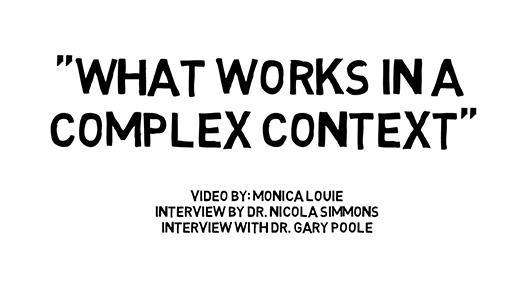2.1.1 Using disciplinary knowledge to narrow a research question
This example from Dewar and Bennett (2015) shows how mathematics educators used their disciplinary knowledge in developing and refining SoTL inquiry questions.
The original teaching problem: My students aren’t as prepared for the class as I would like them to be.
The educator assigns reading from a textbook as an intervention, but finds that students weren’t learning much from reading a mathematics text. This led to a new teaching question: How do I help students to read a textbook more effectively?
Calling upon disciplinary knowledge about reading mathematics texts that most mathematics educators possess through their own experience reveals underlying issues, such as: reading mathematics is different from reading a history text; interacting with a mathematics text involves methods that differ from reading History texts; and most students don’t know how to build their own understanding when reading definitions, theorems and examples.
Reflecting on these observations, the educator developed a series of research questions:
- What do students do when they read the text?
- Does modelling how to read and understand a definition help students?
- What kinds of directed ways of interacting with a definition would help students to learn to read and understand definitions?
- Does instruction on reading mathematics texts facilitate independent learning?
The first question is a ‘What is’ question and the second and fourth questions are ‘What works’ questions. The third question is not a research question but a prompt for the educator to design tasks for the ‘What works’ investigations. (You considered a taxonomy of SoTL research questions in Session 3.)
Note through this example that application of disciplinary knowledge led to designing a different SoTL investigation than from where the initial ideas for a SoTL inquiry arose. The investigation now has a focus on ‘how to read and understand definitions’.
Activity 3 SoTL: Nature of SoTL research
In this 3 minutes 23 seconds video, Gary Poole is interviewed by Nicola Simmons, Brock University. As you watch it, make notes on the nature of SoTL research that Gary is discussing.

Transcript: Video 3 SoTL: What works?
Discussion
Gary mentions a 2009 paper, ‘It’s NOT rocket science: rethinking our metaphors for research in health professions education’ [Tip: hold Ctrl and click a link to open it in a new tab. (Hide tip)] by his colleague, Glenn Regehr, and how this paper has inspired him to reflect on the purpose of SoTL research.
Gary says that when the research question type ‘What works?’ involves investigating a new idea or pedagogy, you systematically examine the effects of the intervention and learning gains. While this is valuable, Gary says not every intervention ‘works’ and yields results as intended.
Referring to the paper by Glenn Regehr, Gary says that SoTL also involves descriptive, conceptual or theoretical research to understand the complexity of the teaching and learning phenomena. When an educator walks into the classroom with a better understanding of what's going on, then he is a better teacher and it allows him to choose his pedagogy better. That is why Gary likes the word ‘understanding’ and the idea of exploring complexity of teaching and learning. He feels that exploring complexity is one of the great perks of all research, and certainly of SoTL research.
Another aspect to firm up the aim and research question(s) of your SoTL inquiry is significance. This is discussed in the next section.
